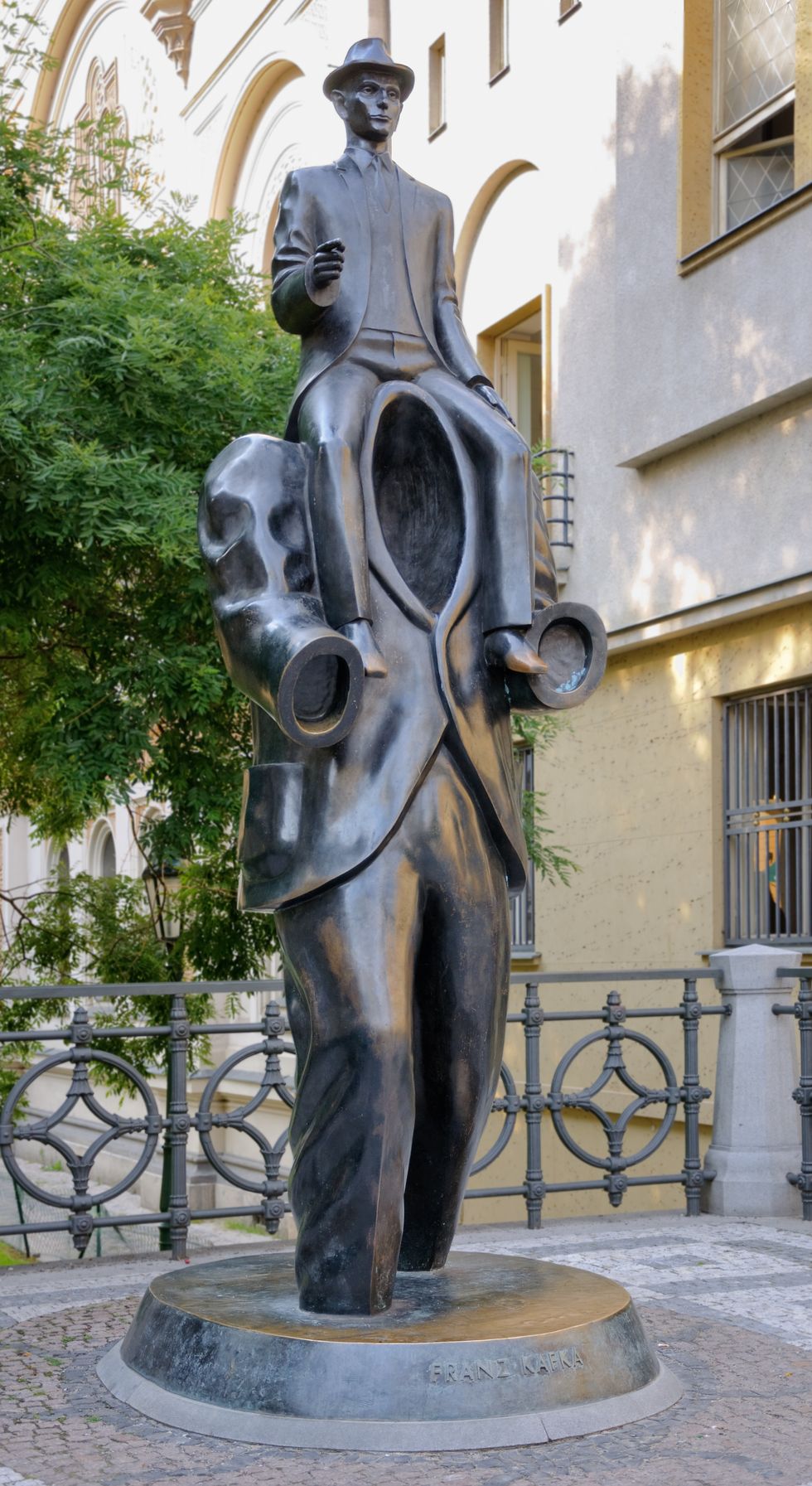During my last week in Prague, I visited the grave of Franz Kafka at the New Jewish Cemetary. After studying him for a month, I almost felt as though I knew him while walking down the same streets that he walked and saw the city that he lived in. After reading the dark and suspenseful tale of The Trial, I understood that Kafka's life was somewhat of a trial. Having never done what he really wanted to do with his life in terms of employment, dealing with depression and tuberculosis, living under the shadow of a father he never agreed with, and being reluctant to ever publish his writings; his life seemed like it was one that he never really enjoyed, unless at cafes or with his friend, Max Brod.
After reading many of his short stories, diaries, and The Trial, my class had a discussion on what we think Kafka's work meant. What I found was that there is no easy answer to this. Kafka's work is commonly said to either be interpreted as nihilistic or existentialist, while others say that it can be open to interpretation; which I like the sound of. Kafka's writings, besides a few diary entries, never struck me as entirely nihilistic. While many of his protagonists do face a dark fate, some of his characters are strong willed enough to make the best of their situations, though they are imperfect characters nonetheless. The best example I can think of is his character of Josef K. in The Trial. While he tries to do everything he can to prove his innocence, his paranoia and erratic behavior slow him down more than he thinks. So, it can be interpreted as existentialist, but I like to think that Kafka wanted to make his stories open to interpretation. Overall, I think his uncanny, surreal, and absurd work can only be defined as Kafkaesque, the dreamlike way he intended them to be.
At his gravesite, my classmates and I read our final words to him before enjoying our last few days in the city of Prague. We had the opportunity to carry on the tradition of setting down stones or coins on his grave, and I put down a Euro cent. When I did this, I thought about how Kafka brought his worlds to us, but he never really wanted the world to see what he wrote. I wondered what makes someone burn 90% of what they write, and I thought that maybe he believed that he didn't have the authority to get his ideas out to the world. Standing there before his grave, I tried to make myself feel like I had some connection to him, but I could only just read what I had to say about how I appreciated his writing and that, whether he knows it or not, it has changed the world. And what does my Euro cent mean? I didn't think of anything at first, and it could have just been an icing on the cake, but looking back, I can see it as a symbol of unity on top of land that was once owned by the bureaucratic government that Kafka detested so much, and there were coins from all over the world on his grave.


















